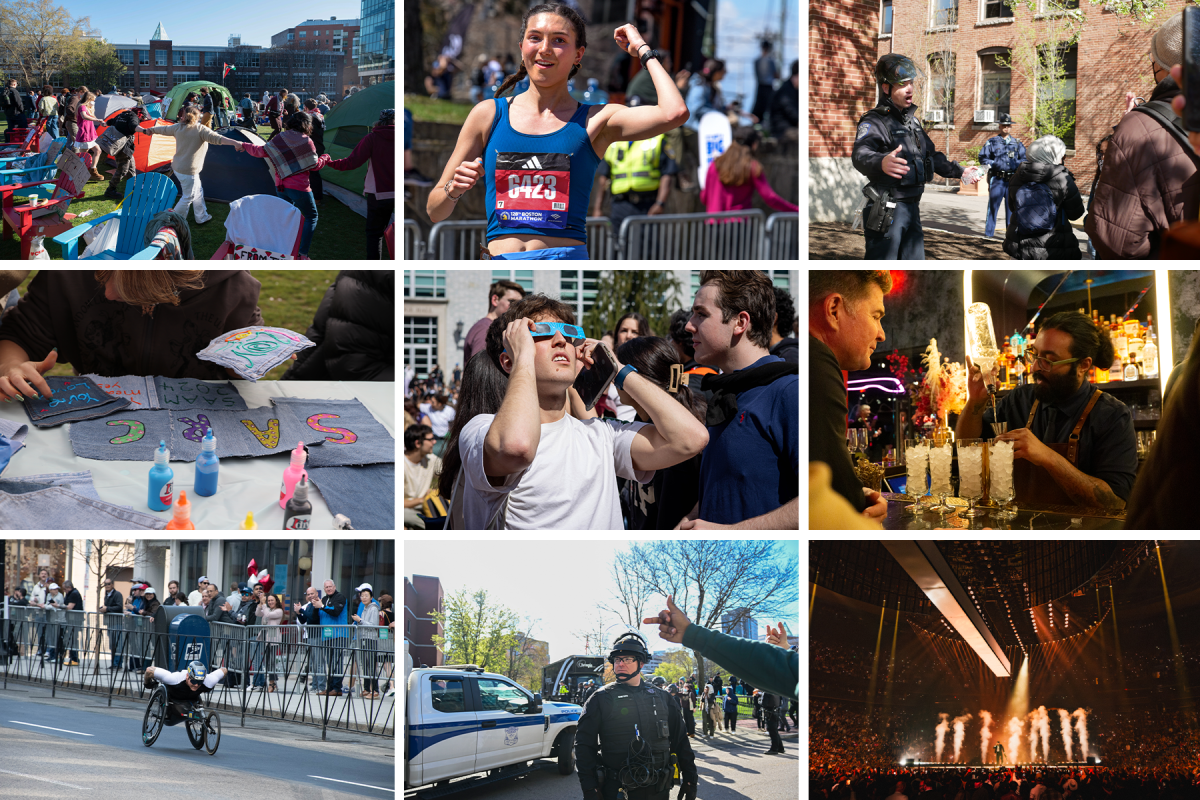By Laura Bennett
The keg stand. The funnel. Beirut. These methods of consuming large quantities of alcohol in short spans of time, also known as binge drinking, can sometimes have more severe consequences than a headache or a night by the toilet.
“Most Northeastern students drink in moderation, and then there are non-users, and then problem drinkers,” said Doctor Jonathan Birnberg, Ph.D., the Interim Coordinator of Alcohol and Drug Education. “A majority of Northeastern students don’t misuse alcohol on a regular basis.”
So who does all of this drinking? According to a survey done by the Harvard School of Public Health, “Forty four percent of US college students engaged in binge drinking in the two weeks prior to the survey.” Binge drinking was defined as five or more drinks for males and four or more drinks for females. Using this definition, 50 percent of males were considered binge drinkers and 39 percent of females. The results of this survey can be found at www.edc.org/hec/pubs/binge.htm.
“We look into how it affects their lives rather than the numbers. There isn’t as much problematic drinking as people think,” said Dr. Jonathan Birnberg of Northeastern’s Center for Counseling and Student Development.
“I think binge drinking encourages girls to drink more, and with the idea that ‘girls can do anything boys can do,’ girls try to drink their boyfriends under the table, which is dangerous,” said Laura Estelle Aitcheson, a freshman political science major.
Students involved in athletics are also highly susceptible to binge drinking according to the Harvard survey. Students who said athletic participation was very important or important to them were one and a half times more likely to be binge drinkers.
“In general because of the adverse effects that alcohol has on anyone who consumes it, I would imagine that it also has adverse affects on their ability to play a sport,” said Cara Tontodonato, a freshman graphic design major.
“I think athletes party more in the off-season than the in season,” said Seth Sivak, a freshman engineering major.
Hangovers are not the only health problems excessive consumption of alcohol can cause. ”
Alcohol irritates the stomach lining, and vomiting is a particularly visible result,” according to Christina Dye in her pamphlet “Alcohol: How Drinking Affects Health ‘ Nutrition.”
The vomiting can also cause tears in the esophagus. Liver problems like Cirrhosis, a disease that cut off the blood flow to the liver and causes varicose veins, can occur in long-term drinkers.
“It’s common to see unwanted pregnancies, sexually transmitted diseases, and injuries that are very often alcohol related,” said Pamela Harris, a certified registered nurse and the coordinator of health promotion and planning at the Lane Health Center. “What’s scary is it’s so part of our society that people don’t feel like it’s a special occasion unless there’s alcohol there.”
“I don’t think people sit down and think ‘I want to drink tonight but I can’t because it’s bad for my liver’,” said Nell Roach, a junior english major. “They think they’re invincible.”
The Northeastern Center for Counseling and Student Development offers counseling for those students who feel they have a drinking problem. Students can meet with a counselor to assess their problem.
“Most students aren’t alcoholics, but they’re using [alcohol] in a manner that gets in the way of relationships, getting better grades, or feeling better,” said Birnberg. “We’d be happy to see them here or to send them somewhere in the community. Most likely we’d set them up with an alcohol and drug specialist.”
However, despite the ubiquity of use, there are some students who choose not to drink.
“Alcoholism runs in my family, it just never made sense to me,” said Laura Estelle Aitchesona freshman political science major. “I haven’t yet woken up one morning and said ‘I want to drink.'”












